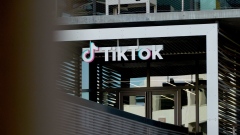Jun 20, 2024
French Party Spending-Power Plans Cost Over €10 Billion a Year
, Bloomberg News

(Bloomberg) -- The three major political groups contesting the French legislative election have made campaign promises that would each cost more than €10 billion ($10.7 billion) per year for the spending-power portions alone, even as France is already struggling to reduce its budget deficit.
The analysis from think tank Institut Montaigne didn’t provide estimates for the entirety of the pledges by the parties. On purchasing power, it put the highest cost on the promises made by the leftist New Popular Front group, with a central estimate of an added cost of €29 billion per year.
“We want to encourage coherence, transparency and responsibility on the part of the political players involved in these legislative elections,” wrote Lisa Thomas-Darbois, deputy director of France studies for the Institut Montaigne.
French President Emmanuel Macron’s snap decision to dissolve the National Assembly has opened the door to the possibility of a new government that could implement economic policies that were considered fringe only a few weeks ago and that come with considerable cost.
France had already been struggling with its public finances. These added cost estimates come just a day after the European Union put the country in a special procedure for excessive deficits that could limit efforts to implement any ambitious spending plans while adhering to EU rules. Last month, S&P Global ratings downgraded the country.
France is also preparing to sell bonds on Thursday for the first time since Macron sent shock-waves through financial markets, driving French bond yields up and hitting the stock market.
The far-right National Rally’s promises to cut value-added taxes and reduce employer charges on lower-paid workers would cost €12.1 billion in 2025, increasing in later years. Institut Montaigne also put a figure of €27.4 billion over three years as its estimate for the cost of indexing retirement payments to inflation.
The platform laid out by Macron’s party and its allies would cost €12.2 billion per year, according to its central scenarios.
The National Rally is leading polls, ahead of the New Popular Front, which spans moderate social democrats to communists. Macron’s group and allies are in third position. France’s two-round voting system means the levels of support don’t necessarily transform into seats in parliament, making it difficult to predict which parties would ultimately be in a position to form the next government.
The main political groups are all presenting their programs on Thursday at a conference being held by business lobby Medef. The head of that group criticized the campaign programs of both the National Rally and the New Popular Front in an interview in Le Figaro newspaper, saying they are a danger to the economy. He estimated the latter group’s promises would lead to €200 billion in extra public spending a year.
Investors are concerned that vast spending programs would further weaken France’s finances at a time when the government was already struggling to plug holes in the budget.
©2024 Bloomberg L.P.







